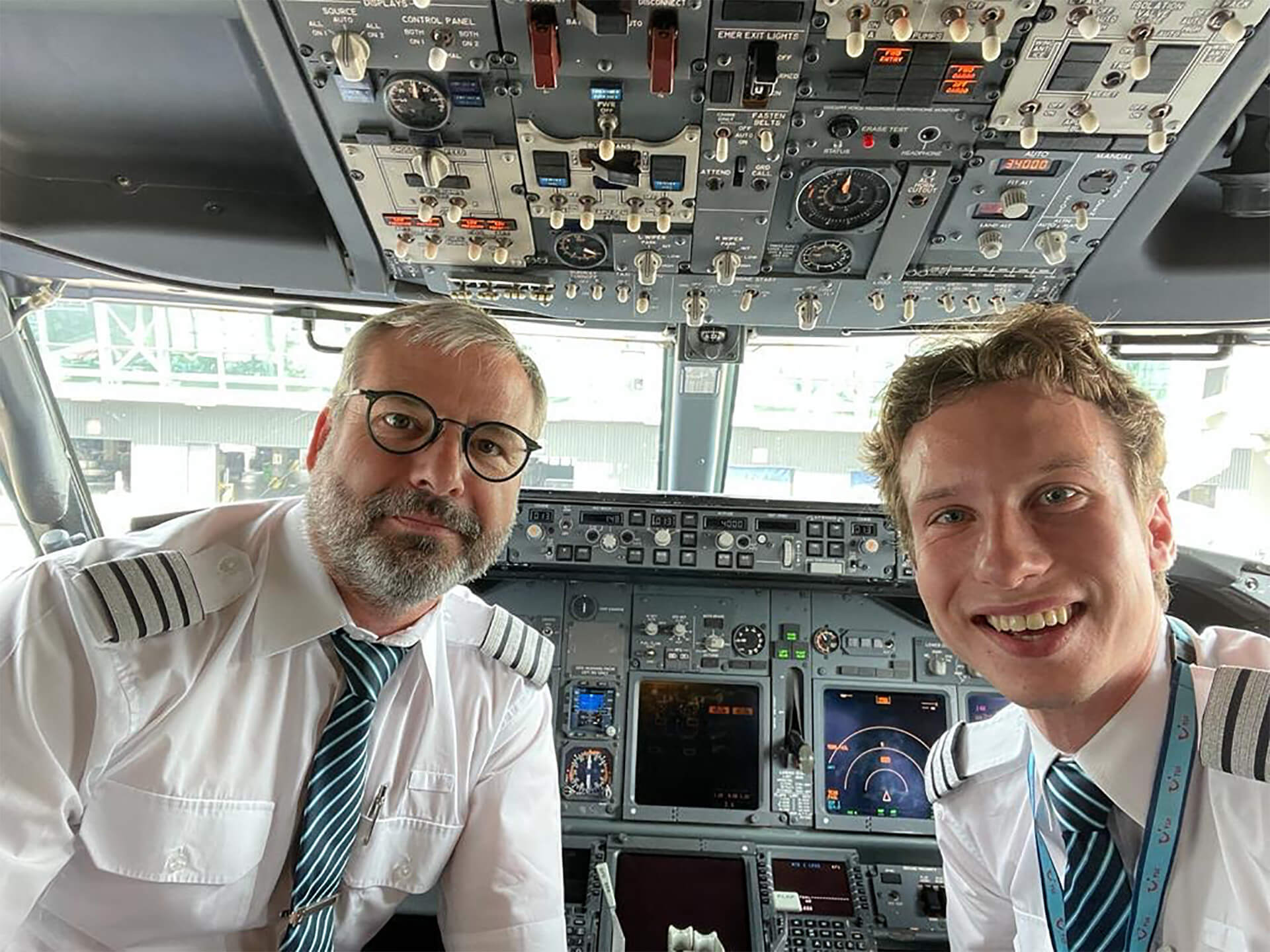Become an airline pilot
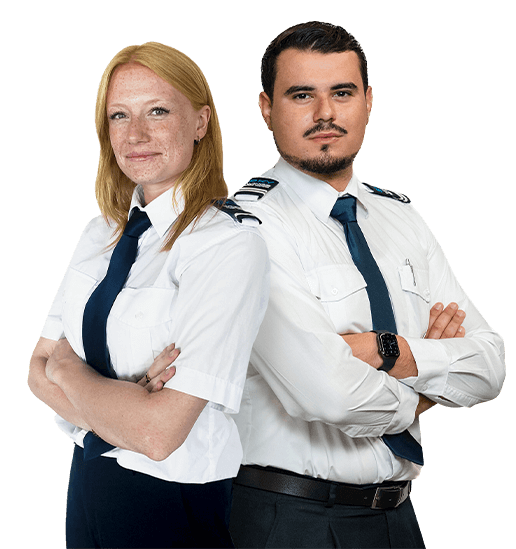
Can I become a pilot?
At Skywings we train airline pilots. It is our goal to give our students everything they need to achieve their dream. This begins with our selection procedure where we make sure you have the skills, means and motivation to succeed.
We are very proud to say that 92% of our graduates land an airline job within the first year after graduation.
Where our pilots are spreading their wings …
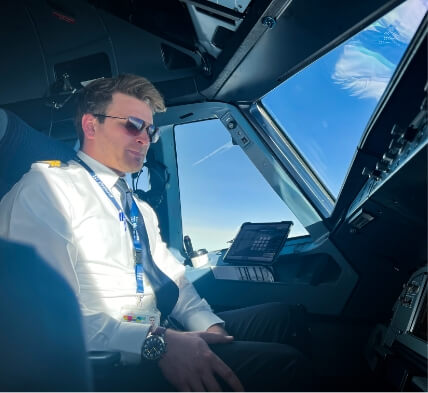
Simon Lemmens
First Officer, Airbus A320, Brussels Airlines
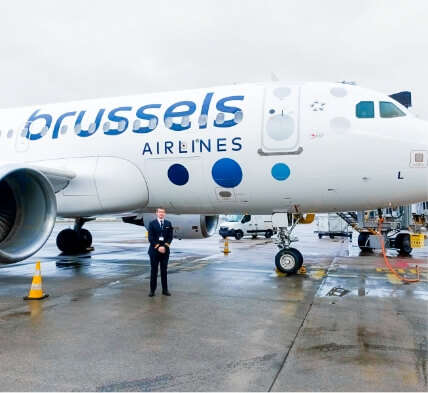
The instructors were great and also provided us the perspective of experienced pilots in both Captains and First Officer positions, both of which I still use in my decision making on a daily basis.
Tibo Swaelens
First Officer, Airbus A320, Brussels Airlines
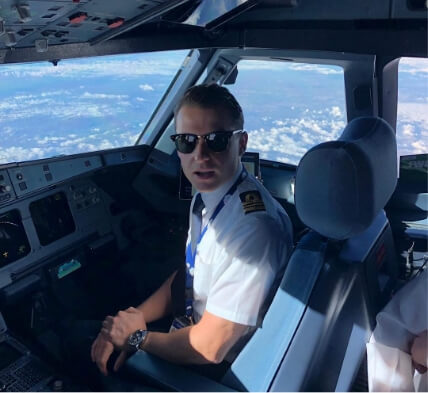
Arnaud Cherlet
First Officer, Airbus A320, Brussels Airlines
We are connected to the airline industry
Skywings is a well-known institution in the airline industry. The school has built a strong reputation for its high-quality training program. One of the school’s greatest strengths is its direct connections with several airlines. This allows graduated student pilots to have a smooth transition into their first pilot job.
Skywings is a certified partner school of European Flight Academy, offering direct access to the online pilot job market of Lufthansa Group airlines.
